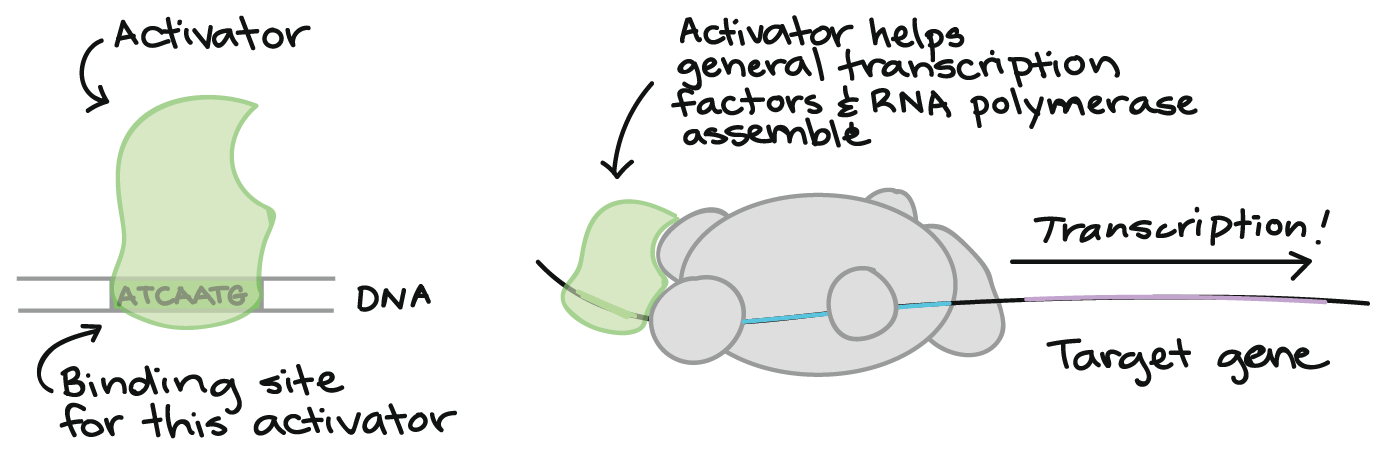Regulation of gene expression in Eukaryotic cells
- Created by: mutsa__
- Created on: 26-01-17 10:37
Fullscreen
Key terms:
- Genome: set of genes present in organism
- Haploid: A nucleus/ cell that contains a single set of unpaired chromosomes e.g human sex cell contains a single set of one of 23 chromosomes
- Transcription factor: protein or short-non coding RNA that can combine with specific site on length of DNA and inhibit or activate transcription of the gene
In Eukaryotic cells:
- Every cell in a eukaryotic organism has the same genome
- Different cells use these genomes in different ways so they function differently
- Genes expressed in one cell will differ to the genes expressed in another cell
- In order for a gene to be transcribed in order for proteins to be formed it requires the RNA polymerase or basal transcription factors to attach to promoter (specifc spot on DNA) with help from the basal (general) transcription factors or transcription factors which control expression of specific/ indivdual genes
Transcription factors:
- Transcription factors are proteins that help speific genes to turn on or off by binding to nearby DNA
- There are two types of transcription factors:
- Activators: these boost gene transcription
- These help the RNA polymerase or general transcription factors to bind to the promoter
- Activators: these boost gene transcription

- Repressors: decrease transcription
- Inhibit the attachment of RNA polymerase or basal transcription factors to the binding site of the promoter

- The binding sites for the general transcription factors are found closer to the promoter but sometimes can be…


Comments
No comments have yet been made